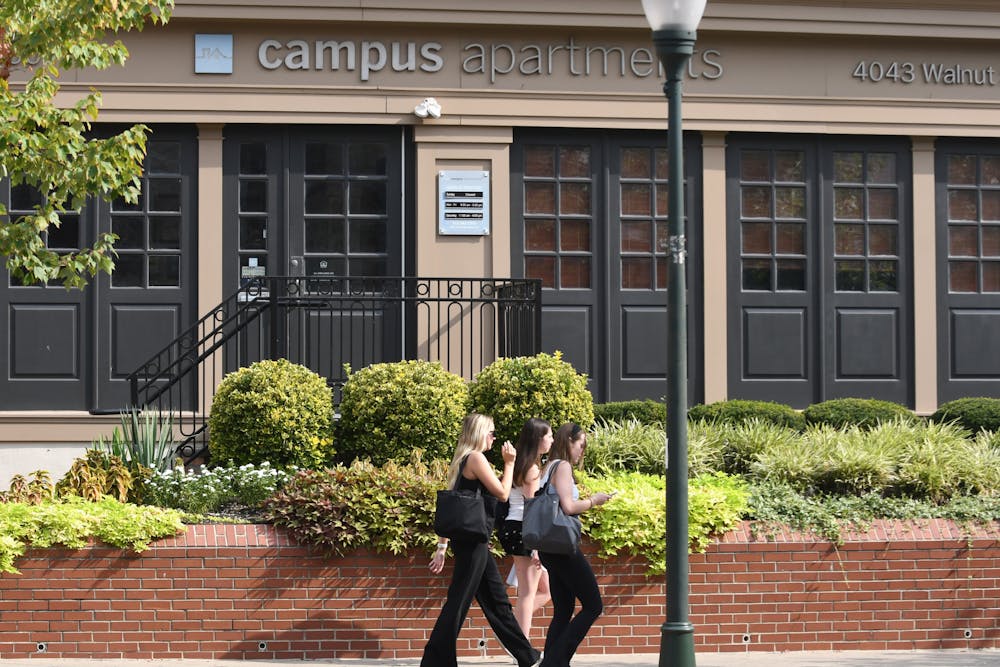
I have a fairly unusual perspective on the new 76ers arena. For four months, I lived in a renovated Victorian managed by Campus Apartments. This firm is headed by David Adelman, who is also leading the 76ers stadium construction efforts. That short time was more than long enough to leave a bad taste in my mouth at the mere mention of new construction led by Adelman.
Almost as soon as I moved in, my $925-a-month apartment was beset by leaks, a broken faucet, a dysfunctional heater, and the occasional cockroach. I complained dozens of times over four months, filing maintenance requests through their online portal, emailing their maintenance address, calling their office, and speaking in person with maintenance workers and Campus Apartments staff to try to get something done. The faucet eventually got fixed. But most issues received no attention at all.
Then, as April drew to a close, I discovered hundreds of larvae incubating under a kitchen mat, a living room rug and all alongside the baseboards. When I called the emergency maintenance line, I was told that the exterminators assigned to my property only came on Tuesdays. I watched in horror as roaches began to hatch in my kitchen, my living room, and my bedroom while I pleaded with the manager to do something. Exterminators wouldn’t come until the following Wednesday.
Frustrated and disgusted, I asked to dissolve my lease. They agreed, perhaps because I had put so many complaints on record. I had a week to find somewhere else to live.
This isn’t a one-off case. Adelman’s Campus Apartments currently owns nearly $200 million of real estate, according to their website, and they’ve been cited for problems before. Some of his properties are in “utterly reprehensible” conditions, per a 2012 lawsuit filed by six students living at 3935 Baltimore Avenue. They alleged problems including “leaks, rodents, mold and the collapse of their third floor bathroom ceiling”. The case was withdrawn without prejudice in 2013.
More recently, in 2020, a student living at 4036 Locust Street brought a case alleging that their house was the site of a mouse infestation and that the building had broken radiators and dysfunctional plumbing. The case was settled later that year.
These complaints are not unique. University City Associates, the University of Pennsylvania’s real estate arm, lists 68 properties, containing 550 total units, on its website. All of these are managed by Campus Apartments. 26 of these properties, or over 38 percent, have failed an inspection at some point, city records show. Seven of these were classified as “unsafe”, and four as “hazardous.”
These numbers don’t even tell the whole story. For every failed inspection, I suspect many more tenants either didn’t know how to advocate for themselves or were unable to get the city to take action. Take 3935 Baltimore Avenue, for example. Despite the history of litigation coming out of this property, to date, it still has zero listed inspections.
In addition to the properties that are never inspected at all, there are the properties whose violations are marked as “complied” even when they haven’t truly been addressed, as I learned in my own apartment building.
Why does this happen? Short answer: inspections in Philadelphia are performed by the Department of Licenses and Inspections, or L&I.
Any Philadelphia native is groaning at the mention of L&I, and for good reason: the department is plagued by a reputation of “sloth and unaccountability.” L&I has seen scandal after scandal over the years, with recent allegations from 2018 suggesting that a former deputy commissioner was driven from his post by a “politically connected” group.
So what can be done? For one, the city has to get serious not only about conducting inspections, but also about supporting and reforming its inspectors. The city should also make its inspections more accessible online. I wouldn’t have signed a lease where I did if I had looked into the property’s history ahead of time, but it’s a hard site to find and clunky to use. Finally, we need to keep a careful eye on the companies that are buying and building property in our city, to ensure that they are acting responsibly and in our best interest. Which brings me back to David Adelman.
Mr. Adelman: if your stadium will be anything like your apartments, I want nothing to do with it.
MADISON WEISS is a 2023 College of Arts and Sciences graduate in Philosophy, Politics, & Economics. Their email is maweiss@sas.upenn.edu.
The Daily Pennsylvanian is an independent, student-run newspaper. Please consider making a donation to support the coverage that shapes the University. Your generosity ensures a future of strong journalism at Penn.
Donate







